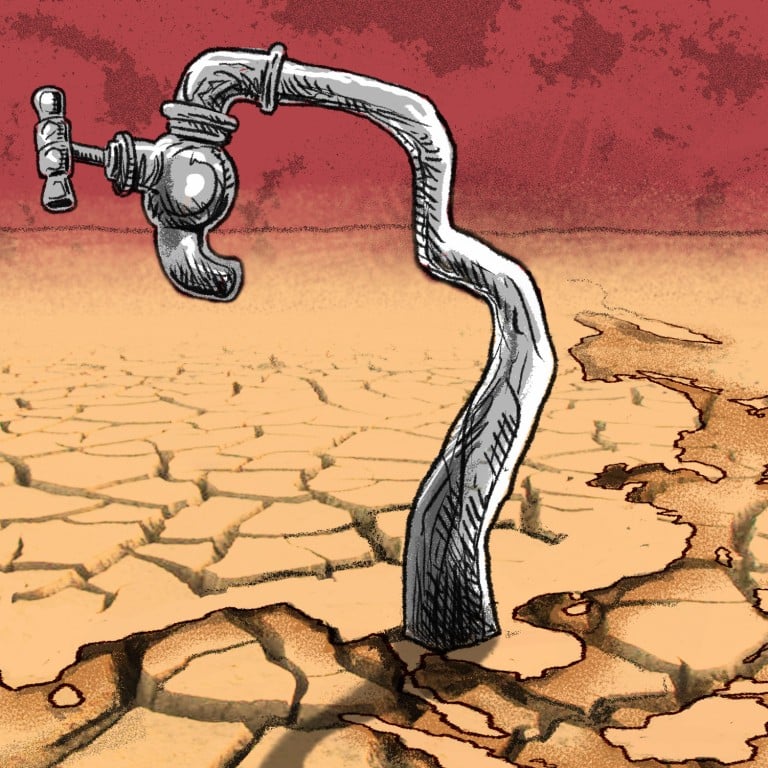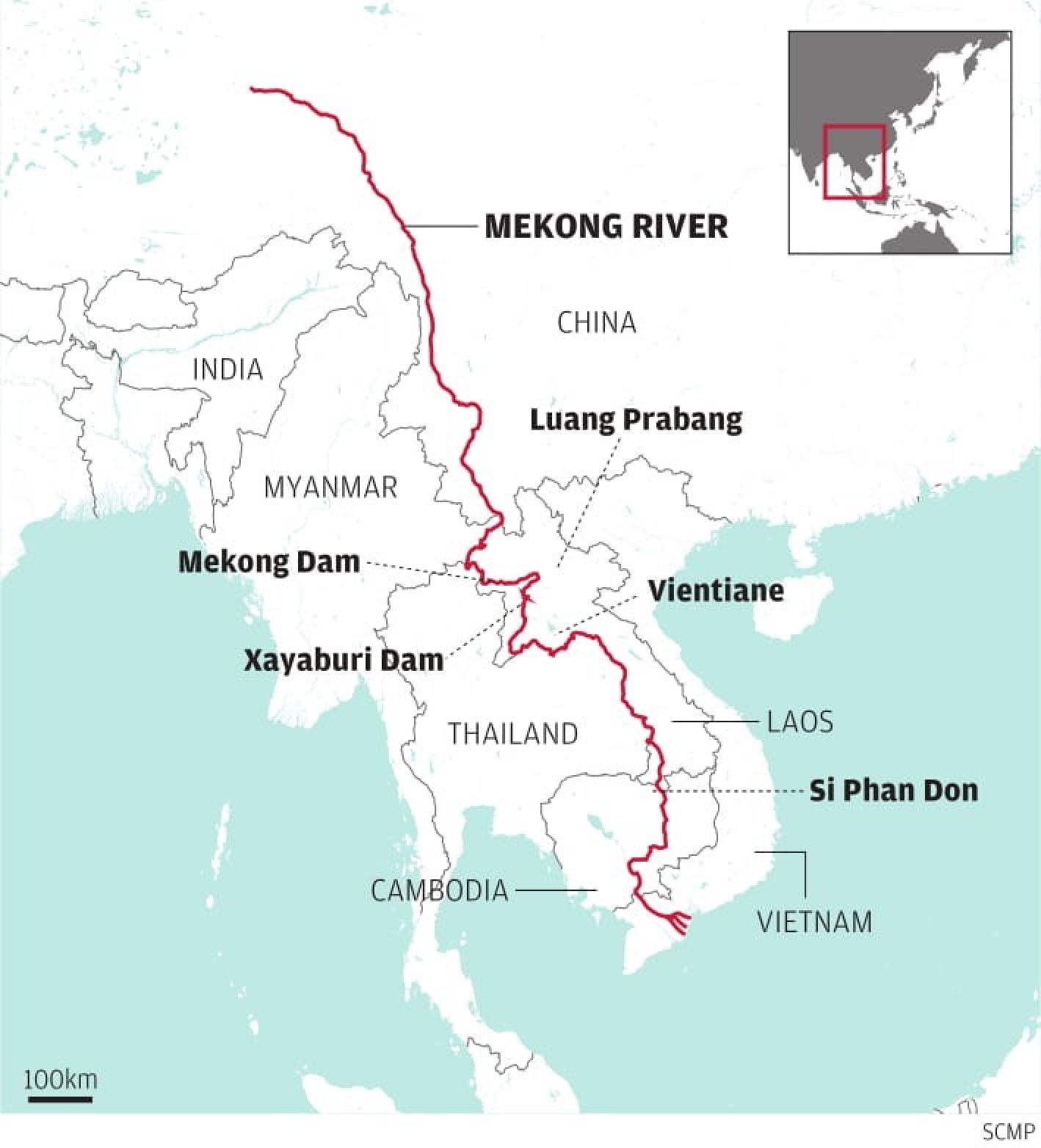
As climate change depletes freshwater resources critical for human and ecological survival, the world faces an escalating water crisis. Droughts, heatwaves and glacial melt are exacerbating water scarcity globally. According to Unicef, more than 2 billion people already lack access to safe drinking water and 4 billion face severe water scarcity for at least one month per year. If this continues, half of the world’s population could live in areas experiencing water scarcity by 2025.
COP27, last year’s UN climate change conference, missed its chance to prioritise the urgent climate adaptation and mitigation policies needed to prevent worsening water security worldwide. This negligence leaves vulnerable regions at risk of humanitarian disaster.
With COP28 on the horizon, the interlinked challenges of climate change and global water scarcity must be made a priority before the crisis becomes irreversible. The future habitability of the planet hangs in the balance.
China faces an acute water crisis that could jeopardise the country’s economic and social stability. Major rivers such as the Yellow River are drying up, exposing riverbeds and disrupting agriculture. Melting glaciers, falling aquifers, pollution and rising demand are depleting China’s water resources. By 2050, China’s water deficit could reach 400 billion cubic metres.
While the government has taken steps such as water transfers, recycling and extraction reforms, they fall short of meeting China’s growing needs. Water scarcity is already diminishing crop yields, hampering hydropower generation and spurring migration. This threatens China’s food security, green energy transition and urban sustainability.
China’s water crisis is a complex issue that demands urgent action across all sectors. Current policies are inadequate for the scale of the problem. Comprehensive transformational strategies and investments in sustainable water infrastructure are needed to avert catastrophic effects in the country.
Southeast Asian countries also face a growing water crisis driven by climate change effects such as El Nino droughts, saline intrusion and pollution straining water supplies. Major agricultural producers Thailand, Vietnam and Indonesia are particularly vulnerable to water scarcity.
Thailand has suffered severe drought, with global supplies of sugar and rice taking a hit. This has led to reliance on water tankers and trucks in rural communities.
Vietnam is another Southeast Asian country dealing with water scarcity because of saltwater intrusion from the rising sea levels hampering irrigation and access to drinking water. Indonesia’s water pollution is exacerbated by deforestation and agricultural run-off, leading to soil erosion and contaminated water supplies.
Lack of cooperation on managing transboundary rivers such as the Mekong poses another major challenge. Hydropower dams and irrigation projects are compromising the Mekong’s fragile ecosystem across its six-country basin while also creating geopolitical tensions and conflicts between countries. For example, a decade ago, Vietnam and Cambodia expressed their strong opposition to Laos building a dam on the Mekong River.
Climate effects, land use changes and uncoordinated development are conspiring to create a severe water crisis across Southeast Asia. Urgent cooperation is needed to improve water governance, curb pollution, protect watersheds and build climate resilience. Regional countries need to work together to confront the existential threat posed by water scarcity and prevent catastrophic effects on agriculture, economies and human welfare as regional stability also depends on protecting water.

South Asia is home to almost 2 billion people and several water-stressed countries. The region is highly dependent on water for agriculture, domestic use and industrial activities, but it faces a dire water crisis driven by the effects of climate change, including Himalayan glacial melt, extreme weather and aquifer depletion. The Indus, Ganges and Brahmaputra rivers, which provide water for millions of people in the region, are all at risk of drying up.
Reduced snow cover and rising temperatures are causing Himalayan glaciers to lose tons of ice each year. The Hindu Kush Himalayas could lose up to 75 per cent of their volume by century’s end because of global warming, causing both dangerous flooding and water shortages for the 240 million people living in the mountainous region. Meanwhile, excessive groundwater pumping is also draining the South Asian aquifers on which up to 80 per cent of India’s population relies.
This multifaceted crisis threatens the region’s food production, economic growth and political stability. Tensions between communities and countries could also escalate as they compete over limited water supplies, such as the Indus River dispute between India and Pakistan leading to the Indus Waters Treaty, the disagreements between India and Bangladesh over the Farakka Barrage, and the India-China Brahmaputra issue.
The climate change-exacerbated global water crisis is no longer a distant threat but a present reality demanding immediate action. Acute water stress in major Asian economies jeopardises the water security of billions of people. Climate effects such as droughts and floods have already diminished agricultural yields, disrupted electricity generation and strained drinking water access for millions of people living in these regions.
The COP28 summit is a chance to call for galvanised action. Water security must be an urgent priority emphasised through climate adaptation plans and funding mechanisms. Developed countries need to support vulnerable nations in building climate-resilient water infrastructure and institutions.
This includes investments in watershed protection, desalination, irrigation efficiency, transboundary cooperation and sustainable technologies for water conservation, treatment and reuse. Failure to act decisively will have massive humanitarian, political and economic consequences.
As the latest UN climate change conference nears, it is time for the world to confront the interlinked challenges of climate change and water scarcity before it is too late and, as some pundits expect, World War III breaks out over water.
Professor Syed Munir Khasru is chairman of the international think tank IPAG Asia-Pacific, Australia, with a presence also in Dhaka, Delhi, Dubai and Vienna
News Related-
Climate change: buy-in on sustainability business case triples among high-level executives, survey shows
-
Fund to compensate developing nations for climate change is unfinished business at COP28
-
NBC 5 Chicago to present Global Climate, Local Impact series on Friday
-
Climate change could soon make these staple Thanksgiving dishes more scarce
-
A fan died of heat at a Taylor Swift concert. It's a rising risk with climate change
-
Yippy-ki-yay, it's 'Die Hard' season again
-
Intravenous education: China hospitals set up ‘classrooms’ so sick children can study during nationwide outbreak of respiratory diseases
-
‘I have a home now’: China DNA match sees repentant petty criminal abducted as child reunited with parents 33 years on
-
Finding a place at the Met, this opera sings in a language of its own
-
Sentimental but not soppy, 'Fallen Leaves' gives off the magic glow of a fable
-
Woman in China cons ‘friend’ out of US$250,000 by posing as rich scion in online romance scam, hires cousin of victim to maintain wealth illusion
-
Tatreez is a testament to the resilience and creativity of Palestinian women
-
Disney's 'Wish' conjures up familiar dreams
-
Games of death: online anger as family of China student who died after marathon live-stream gaming sessions offered US$700 ‘humanitarian’ payout
